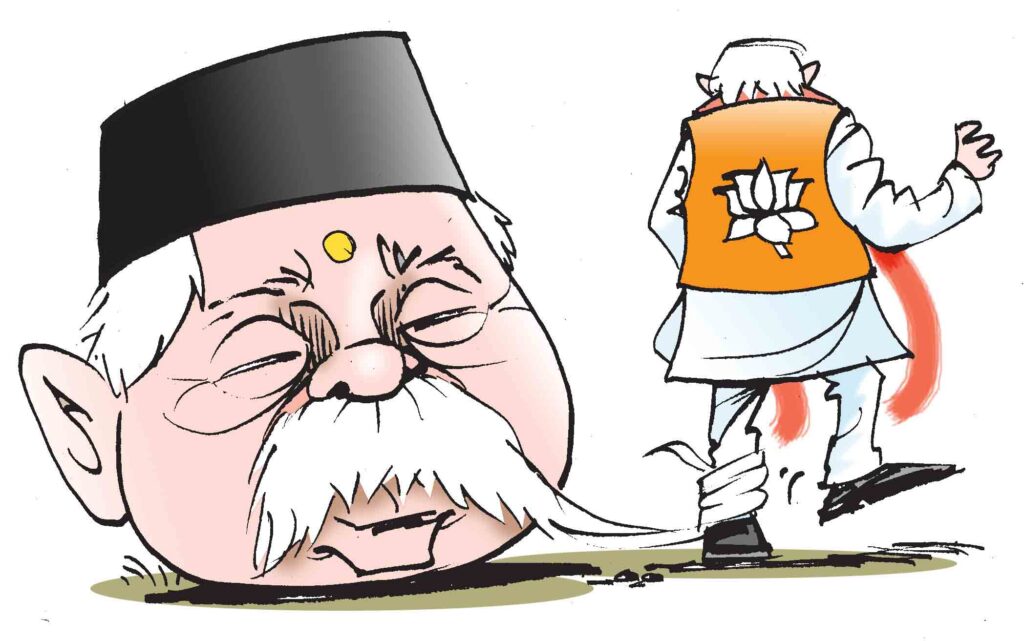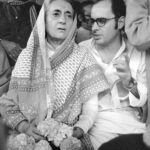THE latest remark by the RSS chief that Mother Teresa‘s sole motive in the so-called service of the poor was a desire to convert them to Christianity has sparked off yet another needless controversy. This is singularly unfortunate, because such comments tend to project a strangely unfamiliar face of Hinduism which has hitherto had a highly tolerant attitude towards religious debate and discourse.
One of the earliest encounters of the Sanatana Dharma was with the Parsis. These adherents to Zoroastrianism had to run away from their native Persia because of trouble there. When they arrived by ship in what is modern Gujarat, the ruler welcomed them to his kingdom. He expressed the hope that they would sweeten the social dialogue just as sugar sweetens milk. The Parsis have since been proving his strangely prophetic remark right.
The first happenstance recorded with Christianity was when Jesus Christ himself appeared before the King of Kashmir. The story unravelled by Christian scholars themselves alleges that Jesus survived his crucifixion and his disciples managed to smuggle him to India. Contemporary records have been cited to show how the encounter went off. Jesus apparently told the king that he was Yeeshu and wanted permission to settle down and propagate his teachings. The king extended a warm welcome to him and said that he was at liberty to spread his faith.
This story might be apocryphal, although its proponents have discovered the tomb of Jesus at a place appropriately named Christabal in Kashmir. But no one can deny the palpable presence of a sizeable Christian population in Kerala,. They call themselves Syrian Christians. They trace their origin to the early Christians who were persecuted in their native Syria and sought shelter in Kerala, coming in by the sea route long before Vasco da Gama had officially “discovered” the sea route to India!
The Hindus have had a singularly relaxed approach to religious debate. We have never given total primacy to a single book. Even the Vedas which are supposed to be acceptable to all Hindus have been challenged with impunity. Hindus never gave themselves a name. The very word ‘Hindu’ has not been coined by them. It is supposed to be a play on the word ‘Sindhu’ and was used to refer to people living beyond the Sindhu river.
Even ‘Aryan’ does not refer to the Hindu faith. In Sanskrit texts, the word was used to refer to persons of dignity and grace. A woman would address her husband as “He Arya!” meaning “O Exalted One!”
The nearest anyone came to giving Hinduism a name was when it was referred to as ‘Sanatana Dharma’, which was translated by Aldous Huxley as ‘the Perennial Philosophy’.
Hindus never let their faith freeze into a mould that could not be broken. Far from denying people the right to challenge established interpretations of the scriptures, they invented the hugely popular mode of ‘Shastrartha’, literally ‘deciphering the meaning of the scriptures’. Debate and discussion was encouraged and the common people thronged to assemblies where such debates took place.
It is out of such fertile exchanges of ideas that our ancestors discovered the three major ways in which a human being could encounter the vast totality that confronted him. The Dwaita (doctrine of dualism) which saw the divine as the other, the Vishishtadwaita (the doctrine of qualified monism) and Advaita which saw the human and the divine as a single unity, the One without a Second.
Hinduism has had the strangely assimilative power of accepting everything and rejecting nothing. The Brahmo Samaj was a peculiarly Hindu response to the modern encounter with the faith that accompanied our British rulers. The Hindus were ready to worship Jesus along with the myriad of gods and goddesses they already boasted of.
Let us not forget that Swami Vivekananda came to Ramakrishna Paramhansa after being first attracted to the Brahmos.
This assimilative power was demonstrated most dramatically in the case of the Buddha. He gave a strong challenge to the Vedas by saying, “Never accept anything because the Buddha says so. Never accept something because ancient scriptures say so. Nor because your elders say so. Only that which appeals to your intellect and you find practical on the basis of your own experience, accept that.” When asked to sum up the gist of what he taught all his life, the Buddha said, “Be a light unto yourself.”
The Hindus assimilated the Buddha on two fronts. On the one hand, the Buddha was added to the Hindu pantheon and became one of the avatars of Vishnu. On the philosophical front, Shankaracharya stole his thunder by inventing Advaita Vedanta, which is nothing but Buddhism in Sanskrit!
The response of the RSS supremo to the challenge posed by Christianity to Hinduism is not in tune with the traditional defence mechanisms invented by the Sanatana Dharma to remain in business.
He could learn something from the following stories which suggest a more interesting response. A Muslim claimed that Islam had a unique doctrine in the concept of Aakhriyat. That is, there had been thousands of prophets in the past but Muhammad was the last. A wag replied that Indians had propounded the doctrine of Aakhriyat thousands of years before Islam. Look at the theory of avatars. Vishnu had only 10 avatars. The 10th, Kalki, was always coming but never actually came! Look at the Buddha. There were millions of Bodhisattvas before him. The Buddha was the last! Look at Mahavira. He was the 24th Teerthankara and predictably the last.

THE true unity of faiths can be seen in their strictly commercial approach. In a village that boasted of all the three faiths, a Hindu pujari, a Muslim mullah and a Sikh granthi met for their usual gossip session after lunch. The pujari said that he had kept a donation box in the temple. Whatever the devotees put in the box went to God, what was thrown on the floor was his. The mullah said that he had spread a green cloth in the prayer room. What fell on the cloth went to Allah, he took the rest. The granthi said that he had spread a white chaddar before the Granth Sahib. After the prayers, he picked up the chaddar and lofted the offerings to Waheguru in the sky. Whatever was kept by Waheguru was his, what came back to earth was the granthi’s.
The RSS supremo should learn a lesson from this story. We know that there is a commercial angle to Hindutva. Such statements might be good for the worldly success of the RSS. But the damage that they cause to the BJP government is incalculable. Many astute observers claim that it is the shenanigans of the saffron brigade that catapulted Kejriwal to victory in the recent Delhi polls!
Narendra bhai might well sing a couplet from a famous Urdu ghazal:
Dushmanon ke sitam hamen manzoor,
Doston ki wafa se darte hain
(I can well accept the torture inflicted by enemies What I fear most is the loyalty of my friends!)
MK Kaw is a former Secretary, Government of India















































